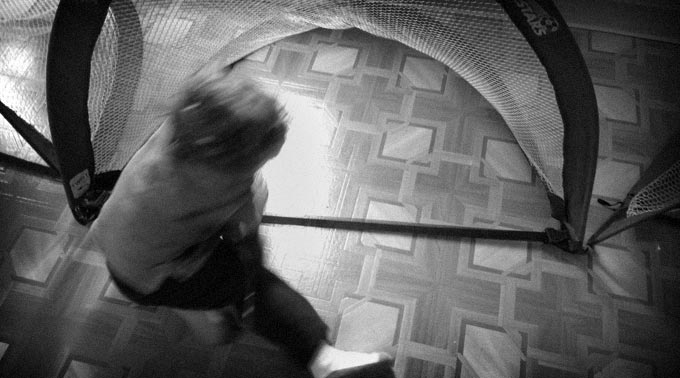
Last Sunday I took C to an indoor soccer clinic for ASD children.
Walking into the large room where the clinic was being held, something struck me: although the kids were generally having a good time, each was mostly in his or her own world. I was in a room full of C's, children entertaining themselves, but not each other.
I noticed the parents were, like me, working extra hard to keep their kids engaged in the group soccer activities; if we didn't, they'd wander off almost immediately. One boy was lining up cones, making perfectly symmetrical arrangements. Another couldn't be pried away from the large mats, obviously enjoying the sensory stimulation as he rolled back and forth.
C, for his part, would participate when I took him by the hand, but he rarely acknowledged the other children; after a while, he began running in a tight circle, his head tilted to the side. He was in sensory overload mode.
Though the room was filled with children, it seemed quieter than I'd expected. It wasn't something I've experienced when surrounded by neurotypical kids.
Being around kids like C was nice — it felt like he belonged there, like he wasn't out of place. Nothing he did would be judged. He could be himself.
On the other hand, it made me a little sad. It brought home, once again, the fact that ASD can seem a very isolating state of being, one that I hope we can help C to transcend.
